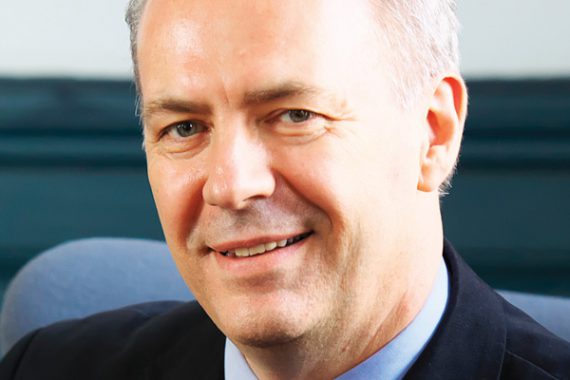This contract is our best chance to rescue general practice


The proposed new contract for general practice in Scotland is a bold new direction for the profession and one that I believe offers our best hope for a sustainable future.
Taking an innovative new approach to how we deliver community healthcare in Scotland is essential. Practices across Scotland have been struggling to recruit to vacant positions and we have started to see this impact on patient care, with some practices closing their patient lists, handing back responsibility to the health board or in extreme cases having to close altogether.
Demands on general practice are increasing day by day as Scotland’s health needs grow. As people in Scotland live longer, they are more likely to spend a longer portion of their lives in ill-health, with multi morbidities and increasingly complex needs.
This has pushed many practices beyond the limits of what they can sustain and has directly contributed to the difficulties in attracting junior doctors to choose a career as a GP.
More than one in four GP practices in Scotland had at least one vacancy in the most recent BMA practice survey. Every unfilled position means that the remaining doctors at a practice are stretched even further in trying to cover the gaps.
The workload that GPs in Scotland face is punishing and too often it is pushing doctors past the point where they burn out and leave the profession.
GPs need more support and the proposed new GP contact is a step towards delivering that. If implemented, larger multi-disciplinary teams of health professionals will work together in communities, making care more accessible for patients.
For some patients with specific problems that they need help to manage, it may be more appropriate for them to see another healthcare professional. The proposed agreement will see more nurses, pharmacists, physios and other healthcare professionals available in community settings so that patients can see them directly.
That means GPs will have more time to deliver the kind of care that only they can. For patients who don’t know what is making them unwell or who have complex needs, the GP will still be who they need to see.
The proposed new contract also recognises that those practices with higher workloads need more support if their quality of care is to be maintained. The funding formula that underpins general practice will change if the contract is implemented, so that while every practice’s current income is protected, those practices with the highest workloads will receive more support, most notably those practices with higher numbers of elderly or deprived patients.
The contract will also take steps to reduce the business risk that comes with being a GP. That will make it more appealing for younger doctors to become GP partners, helping with the difficulties in recruitment and retention.
The new arrangements proposed in the contract for GP premises, GP information technology and information sharing are significant too. The effect of these arrangements will be a substantial reduction in risk for GP partners in Scotland, and a substantial increase in practice sustainability.
GPs across Scotland will get the chance to consider and respond to these proposed changes to their contract in a poll of the profession, which opens on 7 December.
If implemented, the first phase of the new contract will be delivered over a three-year transition phase, with a second poll of the profession taking place before the second phase of changes are implemented.
The NHS relies on a healthy general practice to function effectively. It is the part of the NHS that the greatest number of people interact with and all of us depend on being able to access primary care services when we need them. We cannot allow the difficulties in our GP surgeries to go unaddressed.
I believe that this new contract offers Scotland our best hope of once again making general practice an attractive career choice in Scotland and ensuring that Scottish general practice has a brighter future.
General practice, and indeed the wider health system, faces major challenges as patient demand increases rapidly. Amid severe difficulties in recruitment and retention, it is clear that the status quo in general practice cannot be sustained any longer.
I truly believe that this proposed new contract will bring stability to general practice and put it on a firmer footing for the years ahead.
Dr Alan McDevitt is chair of BMA Scotland GPC
Pulse July survey
Take our July 2025 survey to potentially win £1.000 worth of tokens














